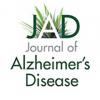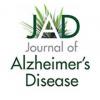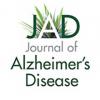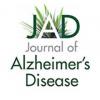30 September 2021
Happiness in Early Adulthood May Protect Against Dementia
While research has shown that poor cardiovascular health can damage blood flow to the brain increasing the risk for dementia, a new study led by UC San Francisco indicates that poor mental health may also take its toll on cognition. The research adds to a body of evidence that links depression with dementia, but while most studies have pointed to its association in later life, the UCSF study shows that depression in early adulthood may lead to lower cognition 10 years later and to cognitive decline in old age.
23 September 2021
MIND Diet Linked to Better Cognitive Performance
Aging takes a toll on the body and on the mind. For example, the tissue of aging human brains sometimes develops abnormal clumps of proteins that are the hallmark of Alzheimer’s disease. How can you protect your brain from these effects? Researchers at Rush University Medical Center have found that older adults may benefit from a specific diet called the MIND diet.
7 September 2021
Stable Memory Test Scores for Alzheimer’s Patients with Omega-3 Intake
A unique study on Alzheimer’s disease examines the effect of omega-3 fatty acids with memory tests and testing of spinal fluid.
25 August 2021
Increase in Registration of Dementia as a Cause of Death
It is well known that dementia is associated with increased mortality. New scientific research shows how in recent years more deaths are being registered with dementia as the underlying cause of death. The growth in the rate of dementia related deaths may be connected to an increased awareness about dementia as a fatal disease.
17 August 2021
2021 Alzheimer Award Goes to Giulio Taglialatela and Balaji Krishnan
Amsterdam, NL – The Journal of Alzheimer’s Disease (JAD) is pleased to announce that the joint recipients of the 2021 Alzheimer Award are Giulio Taglialatela, PhD, Professor and Vice Chair for Research, and Balaji Krishnan, PhD, Assistant Professor, both of the Department of Neurology and Mitchell Center for Neurodegenerative Diseases, University of Texas Medical Branch.
9 August 2021
New Scanning Technology Could Help Diagnose Alzheimer’s Disease Using Light
Researchers with the VA Bedford and VA Boston health care systems have developed a non-invasive optical technique to help detect Alzheimer’s disease. The new technique uses spectroscopy – measuring how light is scattered and absorbed when passing through matter – to identify structural changes in the brain. This scanning method could become a simple, completely non-invasive method of early Alzheimer’s detection, according to the researchers, and also has potential as a way to assess the effectiveness of treatment.
5 August 2021
Digital Neuropsychological Assessment May Become Standard After COVID-19
The COVID-19 pandemic has significantly altered the delivery of health care including neuropsychological evaluations. Telehealth procedures may become a standard feature in healthcare after the crisis has resolved. In a mini-forum published JAD experts describe how neuropsychological tests that combine digital technology with standard paper and pencil tests can reveal behavioral information not otherwise obtainable and facilitate earlier identification of individuals with emergent neurodegenerative and other neurological illness.
4 August 2021
Among Latinos, Obesity and Cardiovascular Factors Combine to Cause Cognitive Decline
Obesity is linked to several cardiometabolic abnormalities, such as high blood sugar and hypertension, which are considered to be risk factors for Alzheimer’s disease. In a new study, published in JAD, researchers at University of California San Diego School of Medicine, with colleagues elsewhere, report that obesity alone is not associated with cognitive decline among Latinos.
2 August 2021
Latin American and Caribbean Research: Major Contributions in the Fight Against Alzheimer’s Disease
This JAD special supplement focuses on the challenges posed by brain disease and presents significant research contributions from Latin America and the Caribbean that address these challenges to help improve the lives of individuals with Alzheimer's disease.
29 July 2021
When We Are Born Can Influence How Mentally Fit We Will Be in Old Age
According to a study published in JAD, people born in winter seem to carry a life-long disadvantage in cognitive ageing. Specifically, their cognitive skills are lower when compared to people born in other seasons, even when taking into account other influencing characteristics, such as their education, depression or cardiovascular diseases.
















